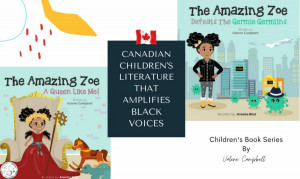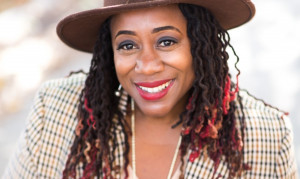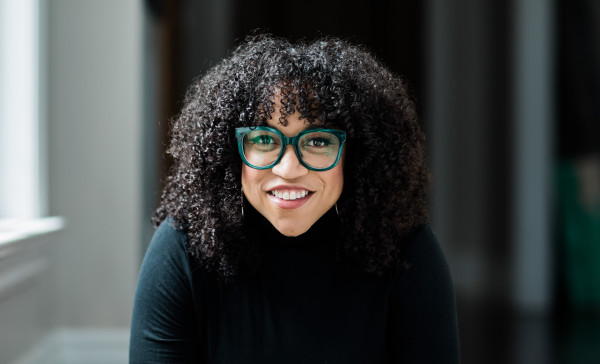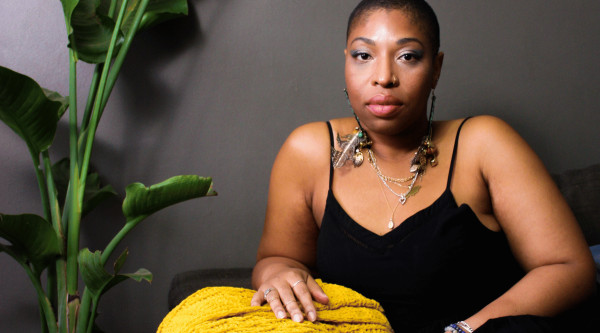Perdita Felicien, two-time sprint hurdles world champion, ten-time Canadian hurdles champion, has written a tell-all memoir. After a career-altering fall at the 2004 Athens Games in the 100m hurdles finals in which she was poised to win, the star athlete turned broadcaster has pieced together the astonishingly brave and bold story of her St. Lucian mother who came to Canada looking for a better life. Her mom caught all kinds of hell in that search but lived to tell the tale to her extraordinarily determined and equally brave daughter.
Why write a memoir, why now?
I was determined to tell the story because I knew the story was worth telling and it was credible. But before I started to tell the story I asked permission.
The story goes deep, it’s personal so, I asked my whole family in 2014, especially my mother...well, first of all, my mother. Once she affirmed that I could tell it I was like, I’m going to tell it, Rosey. Because I lived this experience I knew the only hands I trusted on it were mine.
I knew people would see my name and say, “Oh, Perdita Felicien, this is going to be a story about the Olympics, this is going to be a story about sports. But it’s not. So I was really determined to do this story well. To make sure it wasn’t a story just about me in the Olympics in Athens in 2004. That story is fine but there’s a foundational story that people never knew because I never talked about it and I really wanted to tell that story.
In My Mother’s Daughter, Felicien accounts how at a young age she and her family (her mother and older sister) dealt with homelessness, found refuge living in a women’s shelter in Toronto and struggled with financial insecurities. Similar to Felicien’s unyielding athletic pursuits, she deftly and wholeheartedly dives into her family story with unrelenting detail and sobering truths.
When did you decide to write your memoir and why?
I’ve always known I wanted to write this story because I didn’t know all parts of my mother’s life; how she came to Canada, how she encountered a wealthy white family from Oshawa (Ontario). She was a beach vendor, a teenage mother and trespassed onto hotel property in St. Lucia because she happened to see this vacationing man and his three-month-old baby. And she said, “Hey, do you need a babysitter?” and he said, “yes” and the relationship started from there. So I knew a little bit of that but not all of it.
Through years of research, numerous interviews with family members, caseworkers, friends young and old, Felicien was able to successfully weave an intricate web of trials, tribulations and eventual triumphs through the fine art of Afro-Caribbean storytelling put to paper.
Folks from the Caribbean don’t usually openly talk about family matters. Why did you feel the need to do so?
You are right, West Indian culture especially, you don’t talk about your business. You don’t spill family tea, you don’t even ask your mother her business! I did ask my mom if I could tell our story and she did not hesitate in saying yes which I found striking. Of course, she was nervous about the elements in the book, where we talk about poverty, we tackle abortion, we talk about her, you know, not having proper documentation, being an immigrant, all the struggles of that. So she was of course a little bit nervous about all of that coming to light but when she understood I was going to tell this respectfully, and I was going to tell this truthfully, her thinking was if it will empower other immigrant women, women who have suffered through domestic violence, then “P”, tell it.
How have the hardships which you speak of in the book helped shape who you are today?
Even now I realize my mother carries a lot of guilt in having to rely on me when I was five and six, to be independent when she couldn’t afford a babysitter. I came up with the idea that I will stay at home and take care of myself as a six-year-old. That learned independence at such a young age taught me how to go after the things that I want especially when I saw my mother go after the things that she wanted and even though she had to suffer certain indignities and racism she still went after them. So for me having hardships at the Olympics, having hardships on the track, I still know what I want, I want to see what I can do so I move in that direction. Being witness to my mother’s hardships really informed me and I still live with those lessons.
Every family has their secrets, every family has their mess, every family has their junk and I truly believe that people will find strength and inspiration in this story. I feel like I have just told you what it is and it has given me freedom and I think it’s given my mother and my family a lot of freedom as well. Now we don’t have to hide.
Married to sportswriter Morgan Campbell, the mother of two-year-old daughter, Nova trained to write her first book by completing a two-year creative writing program at the University of Chicago.
The book is out, what’s your overall feeling having released your memoir?
It’s now a national bestseller, I was like, OK! (laugh). I never won an Olympic medal but this feels really nice. It’s on the shelves, Rosey, it just feels like a big accomplishment. I feel like, you know, race day has come, you’ve put in so much work to be at the start line, you run the race and you actually pull it off. It feels like pure satisfaction and bliss but there is a mix of exhaustion and relief, I look back and think wow, I actually pulled this thing off!
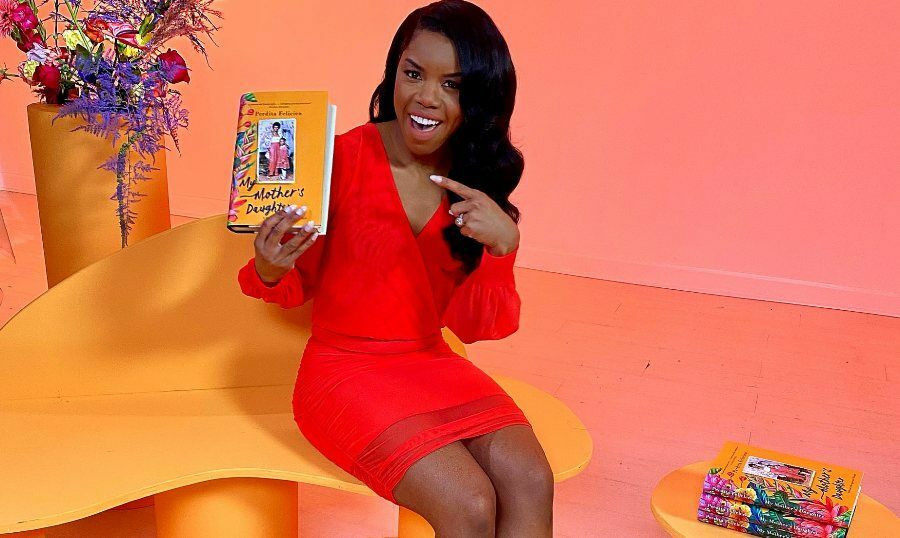
 By
By 




